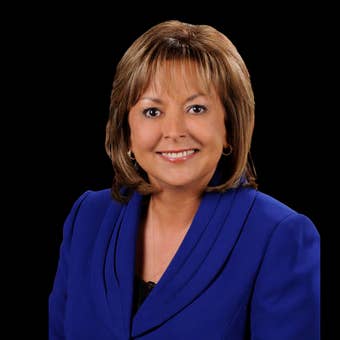Dr. Marty Makary on CDC recommending schools continue to use masks
Fox News medical contributor provides insight on ‘Fox News Live.’
America is on its way to defeating the COVID-19 pandemic. With the recent CDC guidance and lifting of mask restrictions for those who are vaccinated, businesses, restaurants and school buildings across the country are on track to reopen.
However, in our reopening plans, we cannot forget to meet the needs of our vulnerable young people with disabilities.
The financial, mental health and physical security challenges facing students with disabilities have been deeply exacerbated during the pandemic, with many lacking access to their individualized education plans or needed socialization time with other young people.
CHANTAL LOVELL: LA TEACHERS UNION TANTRUM – HERE'S HOW NOT TO RUN A SCHOOL DISTRICT
Now, as parents, local, state and federal leaders push to reopen schools across the country, students with special needs cannot be forgotten and their needs must be met to address the learning loss they have experienced.
I am the legal guardian of my sister, Lettie, who is developmentally challenged. Lettie was born with cerebral palsy that resulted in intellectual disabilities. She is two years older than me but five years old, cognitively.
More from Opinion
I never had biological children. I knew since I was 14 that once my mother passed, Lettie’s new home would be with me full time and she would still be five. Lettie has taught me many things over the years: patience, joy, unconditional love and how important it is to be engaged with her at all times.
Lettie’s best learning moments have always come from social environments. My personal experience with Lettie, since we were little girls to the present, has allowed me to be a voice and understand the educational and social needs of others who suffer from disabilities.
Lettie learns to this day, but I have to pull my mask down so she can see and hear me speak clearly and a little louder than usual, as well as interact with me and others. Otherwise, the mask, and the lack of eye contact and interaction is a barrier to her continued learning.
National, state and local leaders must be advocates for students with disabilities so their special needs are not forgotten as schools plan for reopening.
With COVID-19 disrupting learning for students across the country, many parents of students with disabilities worried their children were falling behind in their classes and did not feel they received adequate support from their schools during the shutdown period. The fears of parents are well-founded, as schools have indeed struggled to meet these students’ needs.
Students with disabilities suffered while trying to manage connecting with virtual platforms, and schools often failed to honor the individual education programs that are required by law. These failures are the result of systemically poor planning and a lack of inclusion, but now that schools are reopening, state leaders and educators must correct the mistakes of the shutdown and build a truly equitable education system for our students with disabilities.
National, state and local leaders must be advocates for students with disabilities so their special needs are not forgotten as schools plan for reopening.
Leaders need to see school reopening as an opportunity to remove barriers that existed for students with disabilities before the pandemic. Efforts should be focused on students who have had the least access to needed resources, including low-income and students of color.
We must be more mindful of data on collaboration and target learning loss, and provide tools to parents to be supportive of their children. Only one in five educators feels prepared to manage the needs of students with disabilities in the classroom, so more educators need to be recruited and trained to support this particular group of students.
CLICK HERE TO GET THE OPINION NEWSLETTER
Right now, our local, state and federal leaders have an unprecedented opportunity to meet the needs of students with disabilities in the reopening of schools. These young people have been left out of the system and our response to COVID-19 for too long.
If we hope to ensure equity in education and help students recover from what experts are predicting to be record learning loss, we need to focus on helping these students and their families as well. If we fail to make change, we will further perpetuate the lingering equity gaps in the American education system for a growing population of students.










































